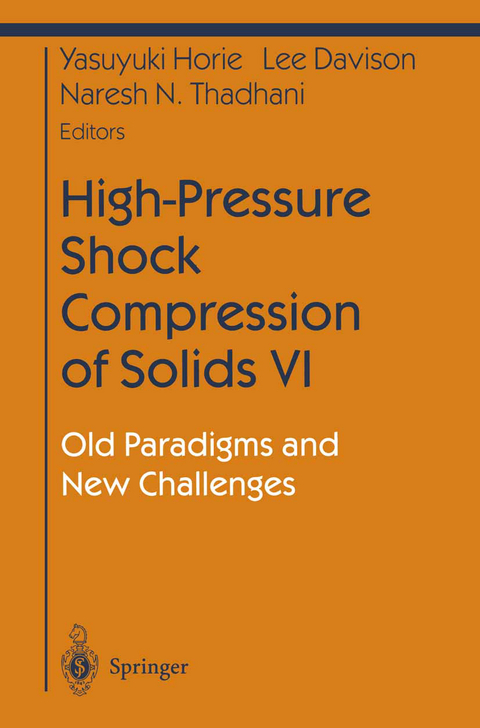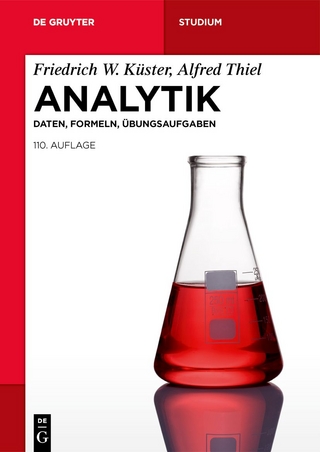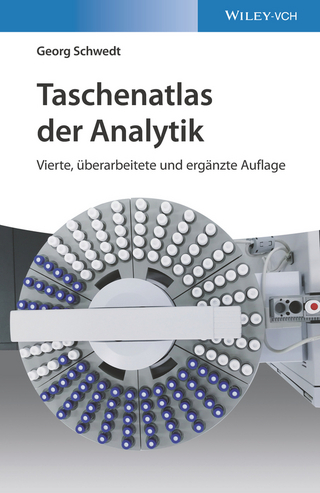
High-Pressure Shock Compression of Solids VI
Old Paradigms and New Challenges
Seiten
2013
|
Softcover reprint of the original 1st ed. 2003
Springer-Verlag New York Inc.
978-1-4612-6554-2 (ISBN)
Springer-Verlag New York Inc.
978-1-4612-6554-2 (ISBN)
Both experimental and theoretical investigations make it clear that mesoscale materials, that is, materials at scales intermediate between atomic and bulk matter, do not always behave in ways predicted by conventional theories of shock compression.
- Can one formulate new mesoscale theories of shock dynamics?
Both experimental and theoretical investigations make it clear that mesoscale materials, that is, materials at scales intermediate between atomic and bulk matter, do not always behave in ways predicted by conventional theories of shock compression. At these scales, shock waves interact with local material properties and microstructure to produce a hierarchy of dissipative structures such as inelastic deformation fields, randomly distributed lattice defects, and residual stresses. A macroscopically steady planar shock wave is neither plane nor steady at the mesoscale.
The chapters in this book examine the assumptions underlying our understanding of shock phenomena and present new measurements, calculations, and theories that challenge these assumptions. They address such questions as:
- What are the experimental data on mesoscale effects of shocks, and what are the implications?
- Can one formulate new mesoscale theories of shock dynamics?
- How would new mesoscale theories affect our understanding of shock-induced phase transitions or fracture?
- What new computational models will be needed for investigating mesoscale shocks?
- Can one formulate new mesoscale theories of shock dynamics?
Both experimental and theoretical investigations make it clear that mesoscale materials, that is, materials at scales intermediate between atomic and bulk matter, do not always behave in ways predicted by conventional theories of shock compression. At these scales, shock waves interact with local material properties and microstructure to produce a hierarchy of dissipative structures such as inelastic deformation fields, randomly distributed lattice defects, and residual stresses. A macroscopically steady planar shock wave is neither plane nor steady at the mesoscale.
The chapters in this book examine the assumptions underlying our understanding of shock phenomena and present new measurements, calculations, and theories that challenge these assumptions. They address such questions as:
- What are the experimental data on mesoscale effects of shocks, and what are the implications?
- Can one formulate new mesoscale theories of shock dynamics?
- How would new mesoscale theories affect our understanding of shock-induced phase transitions or fracture?
- What new computational models will be needed for investigating mesoscale shocks?
1 Traditional Analysis of Nonlinear Wave Propagation in Solids.- 2 Paradigms and Challenges in Shock Wave Research.- 3 The Universal Role of Turbulence in the Propagation of Strong Shocks and Detonation Waves.- 4 What is a Shock Wave? —The View from the Atomic Scale.- 5 Meso-Macro Energy Exchange in Shock Deformed and Fractured Solids.- 6 The Shock Wave as a Nonequilibrium Transport Process.- 7 Non-Equilibrium Evolution of Collective Microdamage and Its Coupling with Mesoscopic Heterogeneities and Stress Fluctuations.- 8 Responses of Condensed Matter to Impact.- 9 The Discontinuous Shock—Fact or Fancy?.- 10 What Is a Shock Wave to an Explosive Molecule?.- Acknowledgments.- References.
| Reihe/Serie | Shock Wave and High Pressure Phenomena |
|---|---|
| Zusatzinfo | XIV, 351 p. |
| Verlagsort | New York, NY |
| Sprache | englisch |
| Maße | 155 x 235 mm |
| Themenwelt | Naturwissenschaften ► Chemie ► Analytische Chemie |
| Naturwissenschaften ► Physik / Astronomie ► Atom- / Kern- / Molekularphysik | |
| Naturwissenschaften ► Physik / Astronomie ► Festkörperphysik | |
| Naturwissenschaften ► Physik / Astronomie ► Thermodynamik | |
| Technik ► Maschinenbau | |
| ISBN-10 | 1-4612-6554-1 / 1461265541 |
| ISBN-13 | 978-1-4612-6554-2 / 9781461265542 |
| Zustand | Neuware |
| Informationen gemäß Produktsicherheitsverordnung (GPSR) | |
| Haben Sie eine Frage zum Produkt? |
Mehr entdecken
aus dem Bereich
aus dem Bereich


